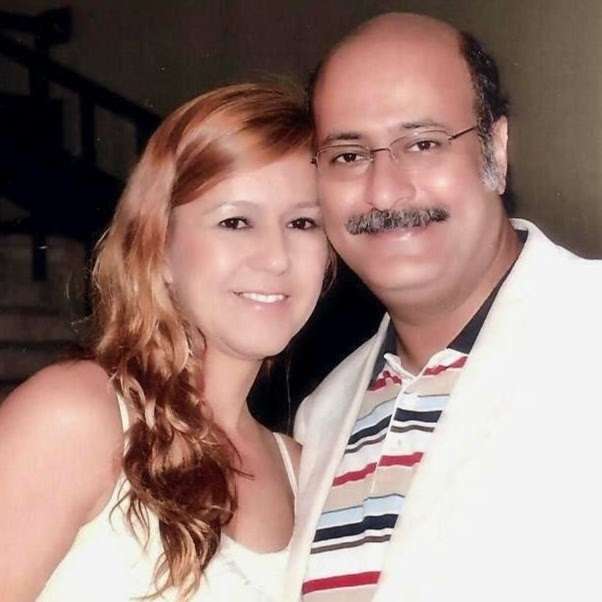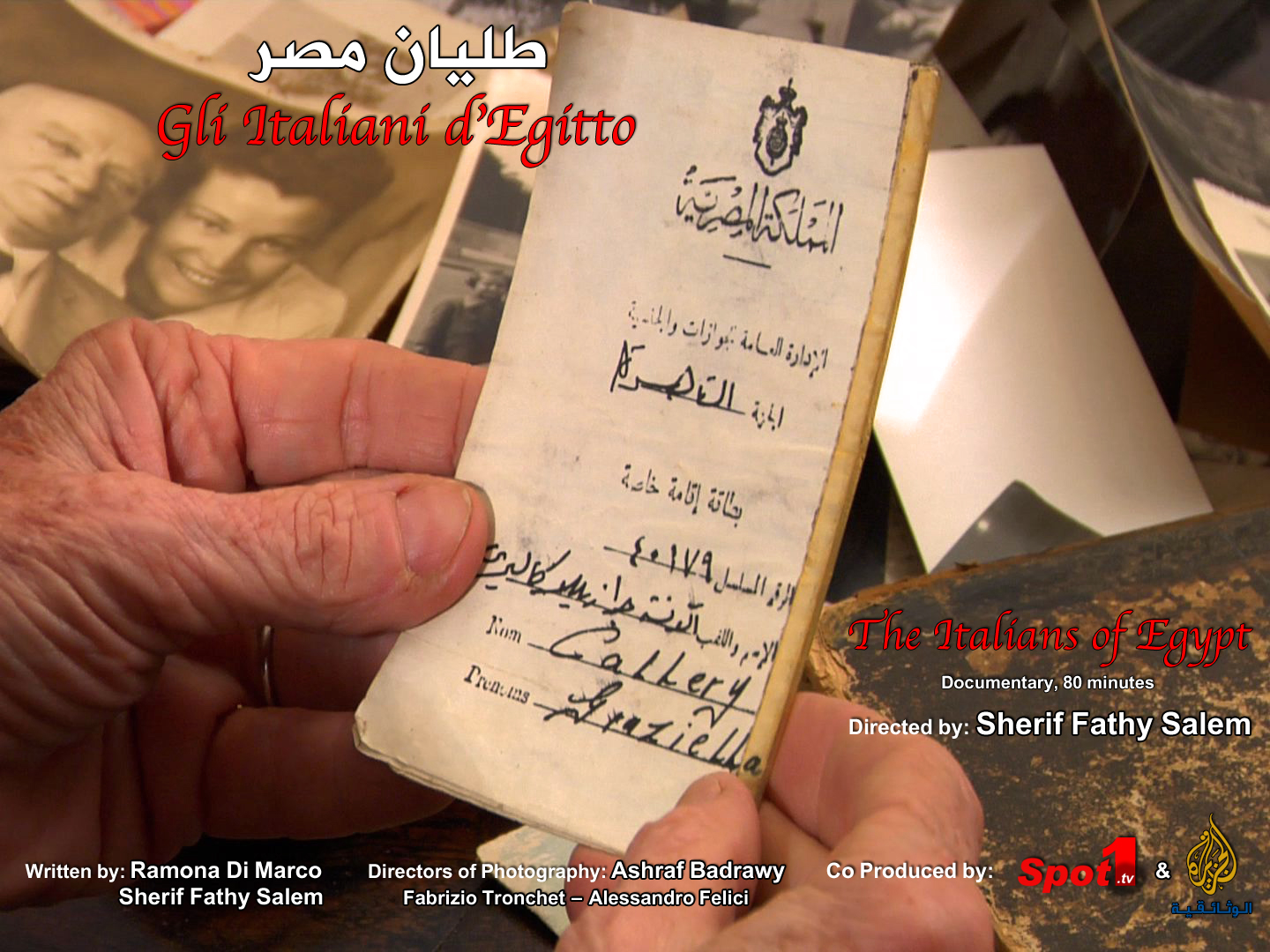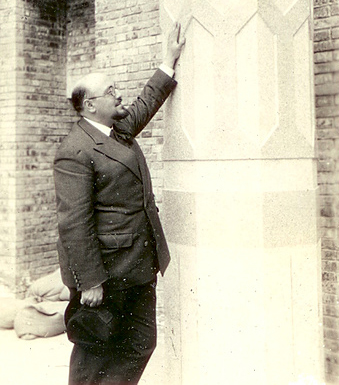by Sherif Awad
Italians were the oldest European community in Egypt and the
most amalgamated into the Egyptian society. Mosques such as Omar Makram in
Cairo and Mursi Abou-Al-Abbas. in Alexandria were designed by an Italian
architect called Mario Rossi who lived then died to be buried in Cairo; The
Italian school Don Bosco played a historic role in the formation of skilled
Egyptian craftsmen; The Alexandrian cinematographer and filmmaker Alevise
Orfanelli worked in Egyptian cinema from the 1920s till the 1960s and passed
his craft to many skilled generations of the Egyptian cinematographers. Italian
Jew Togo Mizrahi was born in Alexandria only to become one of the greatest
pioneering filmmakers in Egyptian cinema. A new documentary directed by the
Egyptian Sherif Fathy Salama and written by the Italian Ramona Di Marco retells
the stories of these Italians of Egypt and many others who are still living.
Some of them went back to Italy while others are still in Egypt. Their testimonies
show the major role of Italian community peak in the 1930s until Italy was
involved in World War II which was the beginning of the end of their long
history.
most amalgamated into the Egyptian society. Mosques such as Omar Makram in
Cairo and Mursi Abou-Al-Abbas. in Alexandria were designed by an Italian
architect called Mario Rossi who lived then died to be buried in Cairo; The
Italian school Don Bosco played a historic role in the formation of skilled
Egyptian craftsmen; The Alexandrian cinematographer and filmmaker Alevise
Orfanelli worked in Egyptian cinema from the 1920s till the 1960s and passed
his craft to many skilled generations of the Egyptian cinematographers. Italian
Jew Togo Mizrahi was born in Alexandria only to become one of the greatest
pioneering filmmakers in Egyptian cinema. A new documentary directed by the
Egyptian Sherif Fathy Salama and written by the Italian Ramona Di Marco retells
the stories of these Italians of Egypt and many others who are still living.
Some of them went back to Italy while others are still in Egypt. Their testimonies
show the major role of Italian community peak in the 1930s until Italy was
involved in World War II which was the beginning of the end of their long
history.
Director Sherif Fathy Salama has a long story that started with
the love of cinema that took him to Italy. “In Cairo of the 1970s and 1980s,
going to cinema with the whole family was a weekly habit. But it had a certain
discipline. It was like going in Tuxedos and fur to the Opera House. I have
seen many films, Egyptian and international but my early influences came from
the films by the great Egyptian director Youssef Chahine’s, most of all his
series of personnel autobiographies like Hadouta Masreya, An Egyptian
Story and Eskendria Leih? Alexandria, Why”, remembers Salem who, after
finishing his studies in architecture, he immediately went to realize his early
dream of studying filmmaking in the Egyptian High Institute. “Our class of 1994
included Ahmed Rashwan, Hala Gala, Saad Hindawy, and Nasser Abdel-Rahman. All
of them became established filmmakers. I can say our class was the luckiest
because we were tutored by greats like Dr. Hesham Abou El-Nasr, Dr. Madkour
Thabet and even Youssef Chahine who used to come and at the Institute. I
directed many shorts and clips while studying and my graduation project was called
Kasr Men Ten, Mansion made out of Mud, where I depicted Kasr Village in Wahat
el-Dakhla.. It is an Islamic village built on Roman ruins. The documentary
brought me my first award from Islmailia Festival then it was screened in
international festivals, namely in Tunis and Munich”, he says.
the love of cinema that took him to Italy. “In Cairo of the 1970s and 1980s,
going to cinema with the whole family was a weekly habit. But it had a certain
discipline. It was like going in Tuxedos and fur to the Opera House. I have
seen many films, Egyptian and international but my early influences came from
the films by the great Egyptian director Youssef Chahine’s, most of all his
series of personnel autobiographies like Hadouta Masreya, An Egyptian
Story and Eskendria Leih? Alexandria, Why”, remembers Salem who, after
finishing his studies in architecture, he immediately went to realize his early
dream of studying filmmaking in the Egyptian High Institute. “Our class of 1994
included Ahmed Rashwan, Hala Gala, Saad Hindawy, and Nasser Abdel-Rahman. All
of them became established filmmakers. I can say our class was the luckiest
because we were tutored by greats like Dr. Hesham Abou El-Nasr, Dr. Madkour
Thabet and even Youssef Chahine who used to come and at the Institute. I
directed many shorts and clips while studying and my graduation project was called
Kasr Men Ten, Mansion made out of Mud, where I depicted Kasr Village in Wahat
el-Dakhla.. It is an Islamic village built on Roman ruins. The documentary
brought me my first award from Islmailia Festival then it was screened in
international festivals, namely in Tunis and Munich”, he says.
Sherif Salem recites Chadi Abdel Salam and Dr. Madkour
Thabet as the directors who mostly had big influence on his style when conceives
a documentary. “While we were students at the Egyptian institutes, Dr. Thabet
invited us to see an advertising documentary he helmed about Shell Company. I
was astonished by the accessibility of the information in watching such
specialized doc. Thabet’s style taught me how to make a documentary enjoyable
as much as it informative. Abdel Salam who is mostly known for The Mummy was a
very sensitive artist whose documentaries also showed me how to poetic and
touching”, he says.
Thabet as the directors who mostly had big influence on his style when conceives
a documentary. “While we were students at the Egyptian institutes, Dr. Thabet
invited us to see an advertising documentary he helmed about Shell Company. I
was astonished by the accessibility of the information in watching such
specialized doc. Thabet’s style taught me how to make a documentary enjoyable
as much as it informative. Abdel Salam who is mostly known for The Mummy was a
very sensitive artist whose documentaries also showed me how to poetic and
touching”, he says.
Going to Rome and working in the regional office of Arab
Radio Television (ART) in the Italian Capital was not among Sherif Salem’s
plans. “Accidentally, 1994, which was my graduation year, was the worst year in
Egyptian film production with a decline of the number of produced narrative
films into only nineteen films. I was assistant director but it was difficult
to find work with this small number of films in the making. Then I got an offer
to work as anchorman in ART, first in Egypt then it Rome. That’s how my
relationship with Italy has begun. My work on the screen prevented me from
directing films for ten years until I resigned from ART and returned behind the
camera in 2005. “When I wanted to refresh my directorial skills by applying to
a film course in room, the school’s director, after seeing my early films, told
me they have nothing to teach me. In fact, he told me I’d better apply for a
teaching job because the films were the work of a professional. At that point,
I realized that it is not enough to learn and or be taught but what’s matter
that the relationship with the other should be built on reciprocity and
exchange of information”, explains Salem who was driven by this revelation to
direct his first documentary about Italian Orientalists. “It was called Orient
Passion in which I tracked down the history of Orientalism in Egypt. For
instance, I discovered there was an Italian-born professor who was teaching
Arabic language in Cairo University to the likes of great Egyptian novelist
Taha Hussein. While researching this documentary, I fell upon lots of
information that interconnect East and West through the Mediterranean Sea, which
was the source of civilization for mankind. The monuments by Muslims in Sicily
became the topic of my follow-up documentary The Traces of the Sicilian
Muslims that shed the light on the period between the year 1000 and the
year 1200 and also shows how Muslim brought to Sicilians lot of their social habits,
culture and practices in agriculture”, he says. The screenings of these
documentaries between Egypt and Italy saw lot of interest and applause to the
point that Salem started to predict it. “I think audience is always looking for
such historical documentaries because the televisions around the world rarely
show such serious content. History of Arab in Italy is less known that their
history in Spain because their architecture in Italy, which was fatimi, was
less impressive than the ravishing heritage in Andalusia. Moreover, many
historians tried to burry this chapter from history books. But thanks to an
Italian historian called Michele Amari who wrote this huge three-part
encyclopedia about Muslim heritage in Sicilia, we would have never got these
details. My film was dedicated to his name”.
Radio Television (ART) in the Italian Capital was not among Sherif Salem’s
plans. “Accidentally, 1994, which was my graduation year, was the worst year in
Egyptian film production with a decline of the number of produced narrative
films into only nineteen films. I was assistant director but it was difficult
to find work with this small number of films in the making. Then I got an offer
to work as anchorman in ART, first in Egypt then it Rome. That’s how my
relationship with Italy has begun. My work on the screen prevented me from
directing films for ten years until I resigned from ART and returned behind the
camera in 2005. “When I wanted to refresh my directorial skills by applying to
a film course in room, the school’s director, after seeing my early films, told
me they have nothing to teach me. In fact, he told me I’d better apply for a
teaching job because the films were the work of a professional. At that point,
I realized that it is not enough to learn and or be taught but what’s matter
that the relationship with the other should be built on reciprocity and
exchange of information”, explains Salem who was driven by this revelation to
direct his first documentary about Italian Orientalists. “It was called Orient
Passion in which I tracked down the history of Orientalism in Egypt. For
instance, I discovered there was an Italian-born professor who was teaching
Arabic language in Cairo University to the likes of great Egyptian novelist
Taha Hussein. While researching this documentary, I fell upon lots of
information that interconnect East and West through the Mediterranean Sea, which
was the source of civilization for mankind. The monuments by Muslims in Sicily
became the topic of my follow-up documentary The Traces of the Sicilian
Muslims that shed the light on the period between the year 1000 and the
year 1200 and also shows how Muslim brought to Sicilians lot of their social habits,
culture and practices in agriculture”, he says. The screenings of these
documentaries between Egypt and Italy saw lot of interest and applause to the
point that Salem started to predict it. “I think audience is always looking for
such historical documentaries because the televisions around the world rarely
show such serious content. History of Arab in Italy is less known that their
history in Spain because their architecture in Italy, which was fatimi, was
less impressive than the ravishing heritage in Andalusia. Moreover, many
historians tried to burry this chapter from history books. But thanks to an
Italian historian called Michele Amari who wrote this huge three-part
encyclopedia about Muslim heritage in Sicilia, we would have never got these
details. My film was dedicated to his name”.
Alongside Sherif Salem, the name of Ramona Di Marco is
credited on The Italians of Egypt. “Actually Ramona is my wife. After we
got married, she started to collaborate with me on my films as a writer and researcher”,
explains Salem. “Our first collaboration was a documentary Clandestini about
illegal immigration from the Arab countries of the Mediterranean Sea to Italy.
I thought Ramona was the best researcher for such topic because she studied then
practiced law in the Italian government. In that doc, we showed many moving
stories including one about an Egyptian underage adolescent who took the boat
to Italy but was caught and put in a juvenile home. Because he was ignorant of
the Italian law that gives to underage teen like him education and residency, he
escaped from the juvenile home because he thought it was some kind of jail. Two
years later, after he became aware of the law, he left himself to be
apprehended again. Now he grew up to be a legal resident”.
credited on The Italians of Egypt. “Actually Ramona is my wife. After we
got married, she started to collaborate with me on my films as a writer and researcher”,
explains Salem. “Our first collaboration was a documentary Clandestini about
illegal immigration from the Arab countries of the Mediterranean Sea to Italy.
I thought Ramona was the best researcher for such topic because she studied then
practiced law in the Italian government. In that doc, we showed many moving
stories including one about an Egyptian underage adolescent who took the boat
to Italy but was caught and put in a juvenile home. Because he was ignorant of
the Italian law that gives to underage teen like him education and residency, he
escaped from the juvenile home because he thought it was some kind of jail. Two
years later, after he became aware of the law, he left himself to be
apprehended again. Now he grew up to be a legal resident”.
The premise of Italians of Egypt was also initiated by
Ramona Di Marco when she met an old Italian lady speaking about her childhood
memories of growing up in Egypt. “This encounter drove Ramona to research the stories
of Italians in contemporary Egypt. When she brought me the first results, I was
ashamed because, although I studied architecture, I did not know that the
Italian architect Mario Rossi was behind the construction of Egypt’s most
famous mosques like Omar Makram and Mursi Abou-Al-Abbas. My friend Abdel-Menem
Saiid, a researcher in Dar Al-Kutub, The Egyptian Book Archives, also
contributed by bringing to us many articles that helped us to track down
Italians in Cairo and Alexandria. One important article was written by the late
historian Younan Labib Younan who brought the facts about how Italians of Egypt
who suffered during the World War II. One great example of Italian of Egypt who
is still living and contributing to society is Franco Greco who was born in
Alexandria then moved to Italy in his youth but decided to comeback upon his
retirement in order to start an intercultural organization in his city of
birth”.
Ramona Di Marco when she met an old Italian lady speaking about her childhood
memories of growing up in Egypt. “This encounter drove Ramona to research the stories
of Italians in contemporary Egypt. When she brought me the first results, I was
ashamed because, although I studied architecture, I did not know that the
Italian architect Mario Rossi was behind the construction of Egypt’s most
famous mosques like Omar Makram and Mursi Abou-Al-Abbas. My friend Abdel-Menem
Saiid, a researcher in Dar Al-Kutub, The Egyptian Book Archives, also
contributed by bringing to us many articles that helped us to track down
Italians in Cairo and Alexandria. One important article was written by the late
historian Younan Labib Younan who brought the facts about how Italians of Egypt
who suffered during the World War II. One great example of Italian of Egypt who
is still living and contributing to society is Franco Greco who was born in
Alexandria then moved to Italy in his youth but decided to comeback upon his
retirement in order to start an intercultural organization in his city of
birth”.
Finally, I asked Sherif Salem about the Mediterranean
culture and collaboration that we hear about all the time through many
organizations in Europe but without real outcome. Salem notes: “In filmmaking,
many organizations offer workshops and training courses for up and coming
filmmakers but rarely we hear that such organizations go on and launch a financing
program for these trainees or distribution system to support finished films in
finding exhibition. So the outcome of such entities is quite vague. If we look to
the big picture, I guess people fall victim to political games. The word collaboration
only signifies economic collaboration and nothing more. Even this economic
collaboration has certain limit and extinct.
culture and collaboration that we hear about all the time through many
organizations in Europe but without real outcome. Salem notes: “In filmmaking,
many organizations offer workshops and training courses for up and coming
filmmakers but rarely we hear that such organizations go on and launch a financing
program for these trainees or distribution system to support finished films in
finding exhibition. So the outcome of such entities is quite vague. If we look to
the big picture, I guess people fall victim to political games. The word collaboration
only signifies economic collaboration and nothing more. Even this economic
collaboration has certain limit and extinct.


